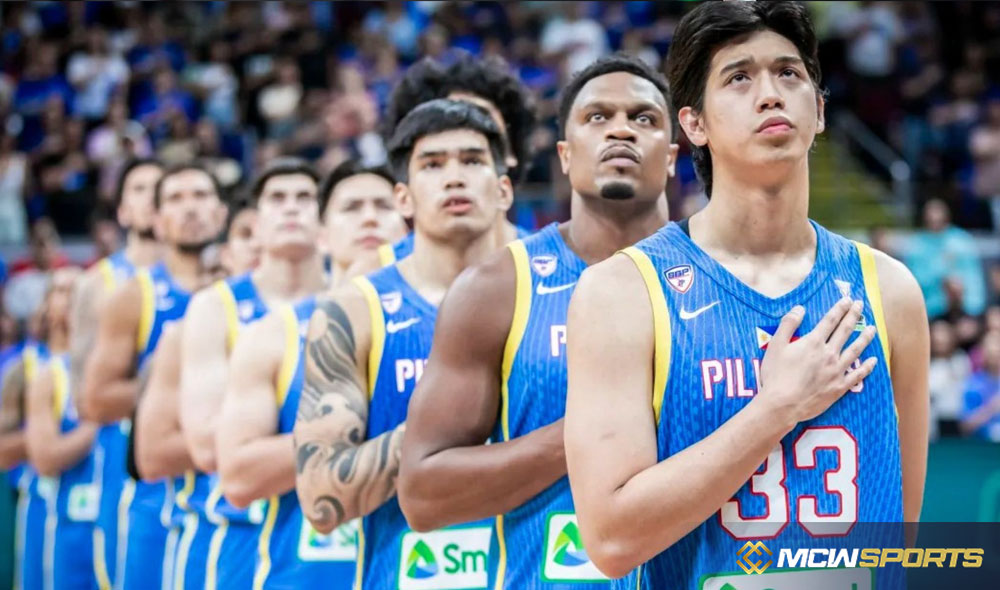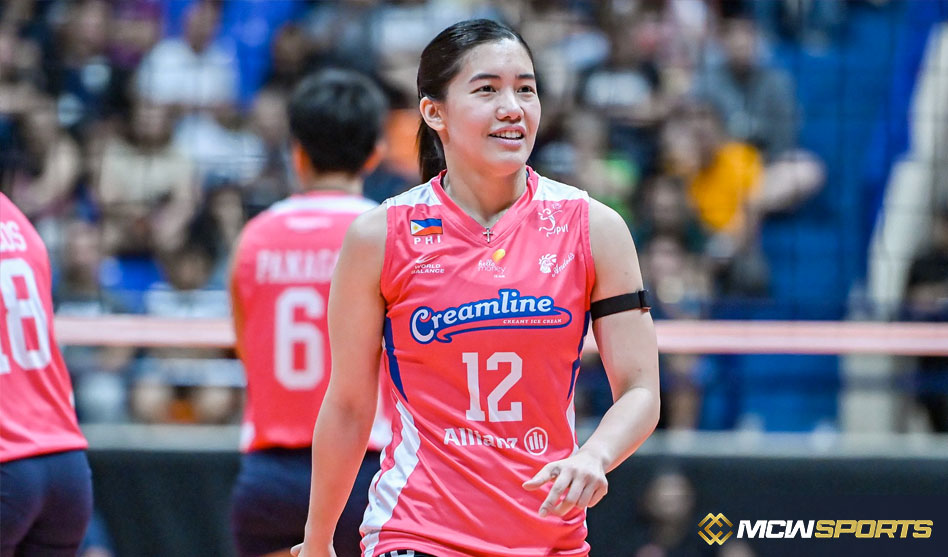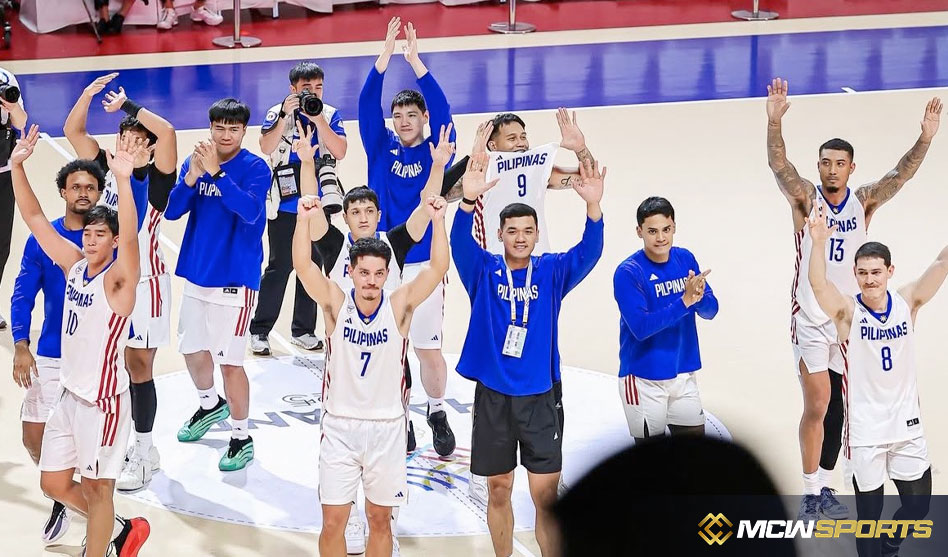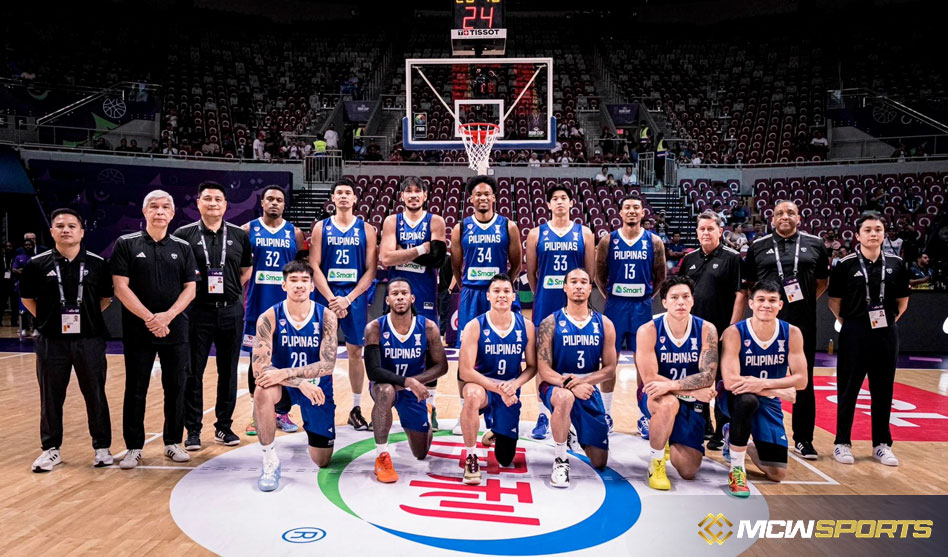MANILA, Philippines – Prior to the 2025 FIBA Asia Cup, Gilas Pilipinas will prepare domestically rather than attending overseas training camps. Executive Director Erika Dy of Samahang Basketbol ng Pilipinas (SBP) confirmed this strategic change, pointing to time constraints as the main cause. The competition is scheduled for August 5–17 in Jeddah, Saudi Arabia.
Tim Cone, the head coach of the national team, made the decision not to take part in any friendly matches or invitational tournaments abroad. The decision stems from the limited time between Gilas’ planned departure and the PBA Philippine Cup Finals. The last game would take place on July 27 if the Finals advanced to Game 7. Less than a week would remain before the squad departs for Jeddah on August 1st or 2nd.
Cone and the SBP decided that remaining in the Philippines would enable a more regulated and targeted preparation because of the short time frame. With the available pool of players, many of whom are now participating in the PBA conference, the coaching staff will utilize the opportunity to improve plays, foster team camaraderie, and hold fitness workouts.
Along with Iraq, New Zealand, and Chinese Taipei, Gilas Pilipinas has been assigned to Group D for the Asia Cup. The group presents a variety of challenges and approaches. Currently rated 21st in the FIBA World Rankings, New Zealand is regarded as the group’s most formidable opponent. The Tall Blacks’ tenacity, organized offense, and potent perimeter shooting have always caused issues for the Philippines.
The 71st-ranked Chinese city of Taipei will provide a different kind of challenge. Their fast tempo and smaller, faster guards necessitate rigorous transition defense discipline. Although Gilas has historically beaten Chinese Taipei in recent meetings, there is still little room for error. Gilas’ interior strength and rebounding were key factors in their tight 79-74 victory in their most recent Asia Cup match.
It is important not to undervalue Iraq, the group’s lowest-ranked squad at 85th. With younger players, the squad has been rebuilding and has achieved unexpected victories against teams with higher rankings in the past. During the 2017 Asia Cup, Gilas defeated Iraq 84–68, however, they had trouble early in the match because of defensive lapses and turnovers.
Concerns over Gilas’ match preparedness are raised by the lack of international friendlies. Players are usually exposed to a variety of styles during international tune-ups, which helps them hone their intuition when playing under pressure. The coaching staff intends to fill this void, though, by scheduling at least one exhibition game in the area prior to departure. Before the group stage starts, a friendly match against another early-arriving team in Jeddah might be scheduled.
Even without international exposure, Gilas will gain from consistency. The team is anticipated to include a number of players from the 2024 FIBA World Cup qualifiers and the successful 2023 Asian Games gold medal run. Many in the pool are now more accustomed to Coach Cone’s style of play, which prioritizes aggressive full-court defense, motion offense, and controlled spacing.
Depending on their availability and fitness, key players like June Mar Fajardo, Scottie Thompson, CJ Perez, and Jamie Malonzo are expected to return. Fajardo is still the mainstay in the paint after averaging 14.5 points and 10.3 rebounds per game throughout the 2023 Asia Cup qualifiers. In the meantime, Perez’s scoring bursts and Thompson’s two-way ability will be crucial in close games.
The speed at which Gilas can get back into rhythm once the PBA season ends will be a major factor in their success. The coaching staff will also have to manage workloads and assess player weariness, particularly for players who have just finished long playoff runs.
Gilas has a good chance of moving past the group stage, according to analysts. A play-in would be necessary for a third-place finish in Group D, although a top-two result would guarantee an automatic berth in the quarterfinals. Gilas would probably compete against New Zealand for group supremacy if they were to overcome Chinese Taipei and Iraq.
Every match has significance under the current FIBA Asia Cup structure, and no opponent can be disregarded. Although the lack of international tune-ups poses difficulties, Gilas’ targeted, regional strategy shows a practical reaction to the schedule’s reality.
Coach Cone and the SBP are still optimistic that the team can perform up to standard if they have the proper planning, discipline, and player dedication. In addition to making it far in the competition, Gilas Pilipinas wants to regain its position as the leading team in Asian basketball.

 English
English










